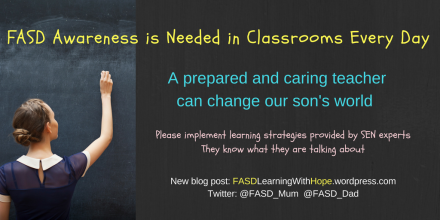The Diary of a Not So Ordinary Boy
If it weren’t for the pressure I feel under to be thin, I could almost believe that my body was my own. I sit, every morning, eyeing my breakfast and telling myself I ought to eat less, be less; every morsel that passes my lips laced with an added helping of guilt.
I never used to worry about being thin. I never even used to think about it. All those women, publicly plastered over the pages of magazines, paraded on the telly and in films, naked in newspapers; they had nothing to do with me. I was young, and strong(ish). My body was a sign of my power. It was mine, and I wasn’t reducing it for anyone.
I remember the moment when I understood that it didn’t really belong to me at all. I was sitting in a blandly lightish-beige office, chatting to a doctor, an obstetrician. She was…
View original post 479 more words












 By @FASD_Dad
By @FASD_Dad